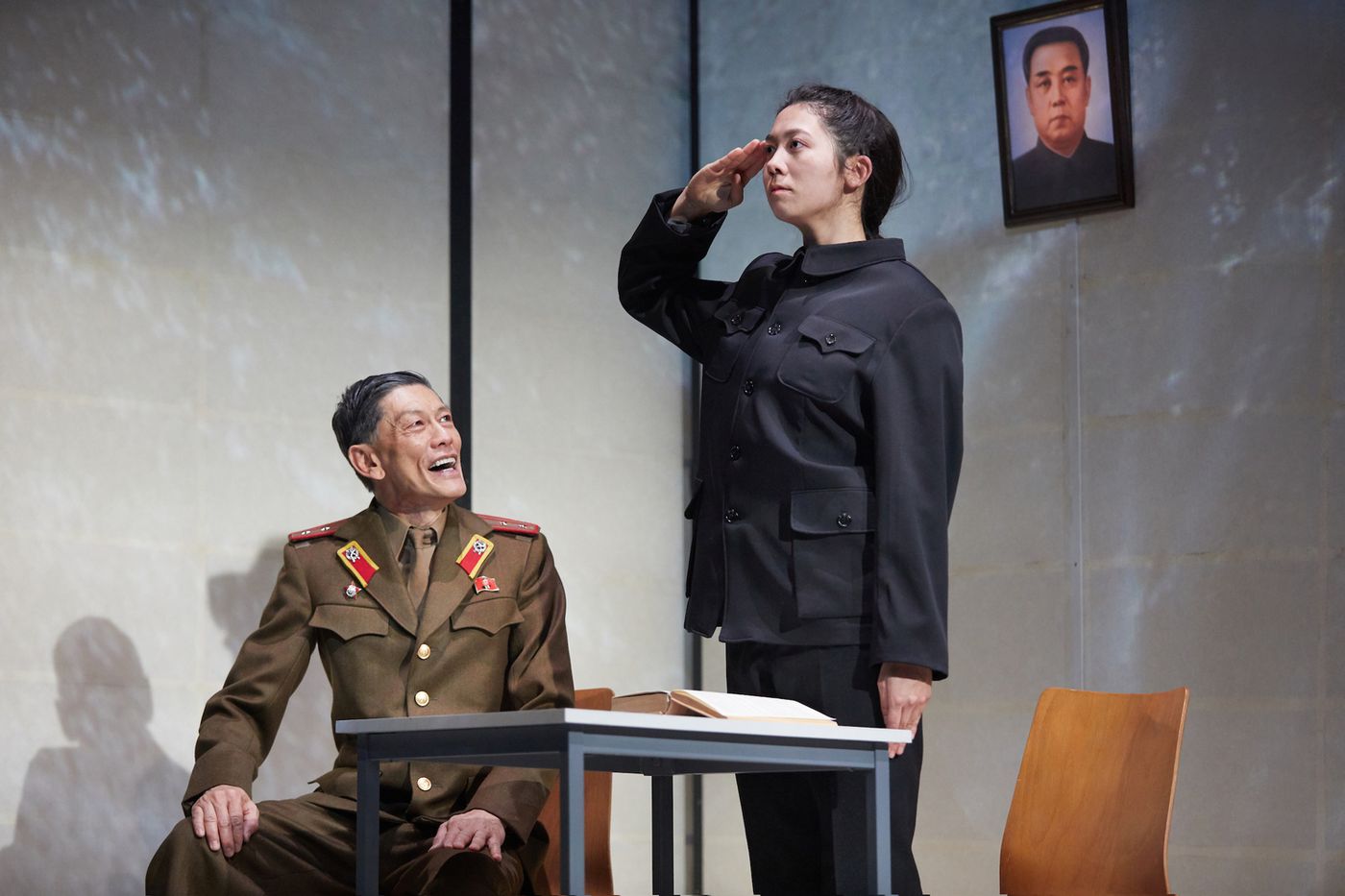Review: THE GREAT WAVE, National Theatre

![]() This new play, written by Francis Turnly, produced in association with the Tricycle Theatre and directed by Indhu Rubasingham, is a dramatic account of families divided by the sea.
This new play, written by Francis Turnly, produced in association with the Tricycle Theatre and directed by Indhu Rubasingham, is a dramatic account of families divided by the sea.
Teenage sisters Hanako and Reiko are living a normal life in Japan with their mother Etsuko (Rosalind Chao). Reiko (Kae Alexander), one year her sister's senior, is hard-working and academic. Hanako (Kirsty Rider) is less interested in study and more in music and trying to steal her sister's admirer.
The chance events of one stormy evening in 1979 lead to Hanako apparently being swept out to sea. This isn't a case of drowning, though. Unbeknownst to the family she has left behind, Hanako's fate lies in the hands of one of the most notorious regimes in the world: North Korea. But does the belief and determination of her mother, sister and friend Tetsuo (Leo Wan) that Hanako is still alive mean all hope is not lost...?
To reveal too much more about the plot details of The Big Wave would risk spoiling some of its fine twists and turns. However, you can expect everything from broken promises and betrayal, through brainwashing and redemption, all the way to extraordinary sacrifice for loved ones.
This is a play - and a story - with strong women at its core, and Rider, Alexander and Chao all rise to the challenge of portraying an epic tale that spans over two decades. Rider in particular is compelling in her portrayal of Hanako, whose world is turned upside down and inside out, but whose stalwart determination to survive remains in spite of everything.
At the centre of Tom Piper's geometric set is a cube-like structure that slides and revolves. With each turn it progressively reveals the two sides of the story to the audience, but keeps the division between the parallel developments in Japan and North Korea. It also serves to effectively highlight the contrasts between the bare brutality in one location and the liberty enjoyed by those in the other.
The potentially tricky issue of illustrating the language divide between the two scenarios is also elegantly handled. Several scenes in Act One start with some words in either Japanese or Korean, to indicate the level of communication between characters, then the dialogue switches back to English to allow the audience back in to the story.
The first half of the play at times feels a little slow in pace, but after the interval it's really quite gripping - it's always a good sign for me when an act ends and I realise I haven't looked at my watch once.
The story is actually firmly rooted in truth - the programme notes explain that a number of Japanese people mysteriously went missing in the 1970s and were later found to have been abducted by North Korea for political ends. The truth behind it only serves to make this theatrical experience more heart-wrenching.
Seeing this story on stage will be an education for many who, like me, were unaware of the plight of these missing people. The Great Wave does justice to their incredible, and incredibly tragic, story.
The Great Wave at the National Theatre until 14 April
Photo credit: Mark Douet
Reader Reviews
Videos

